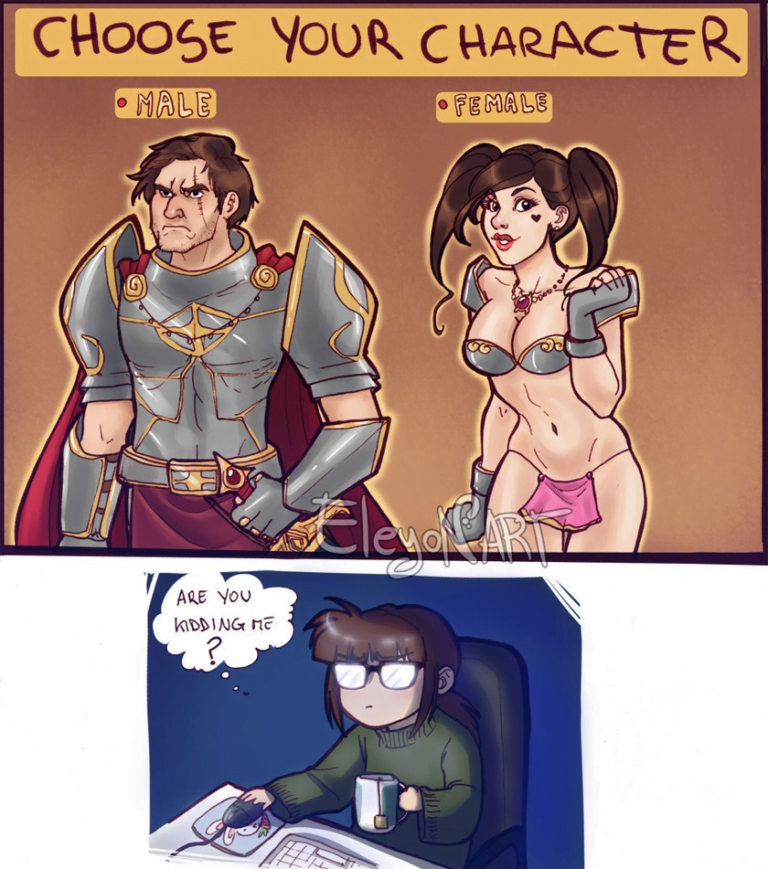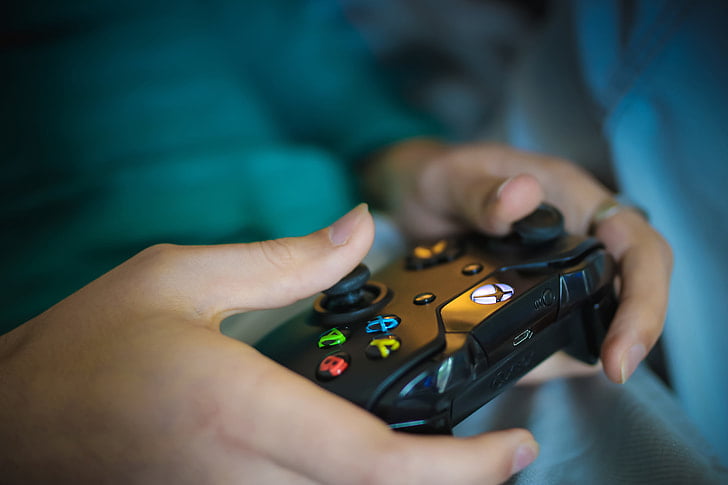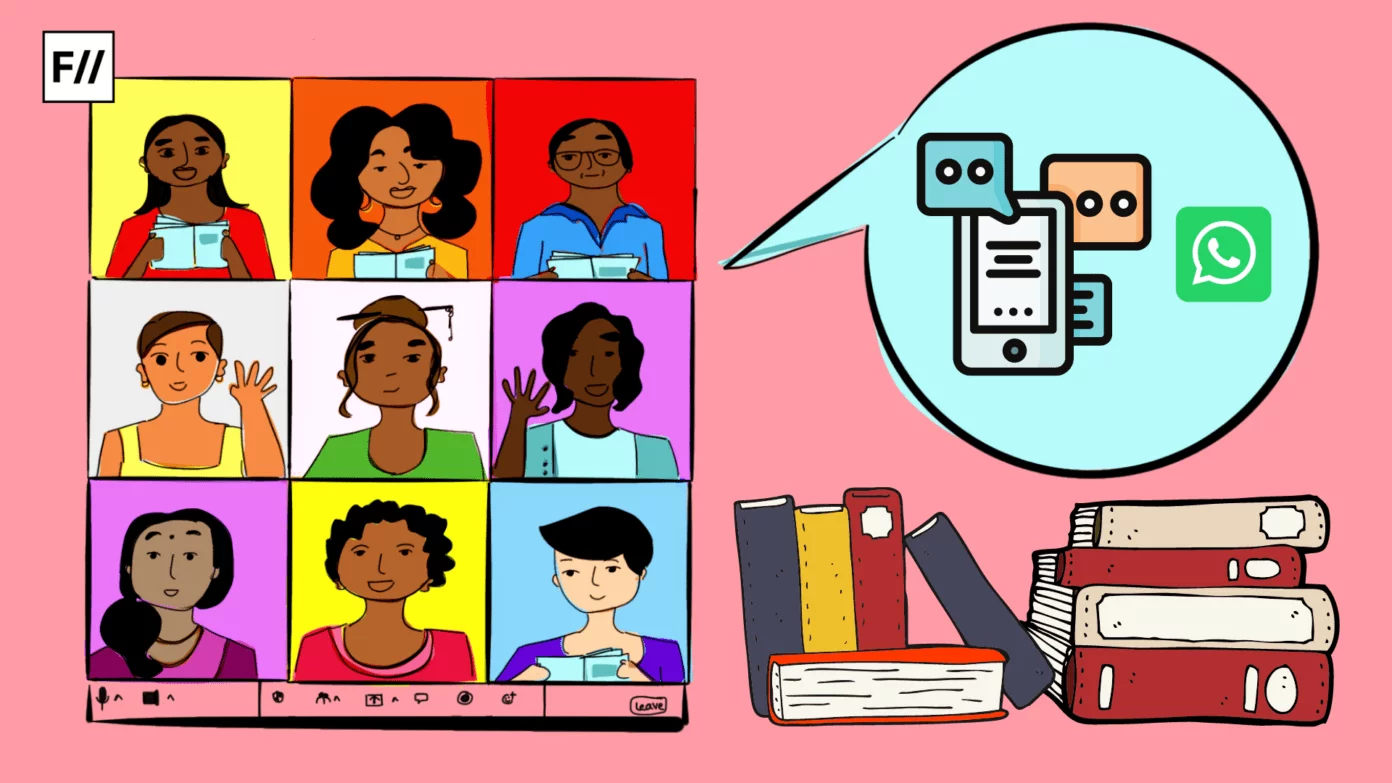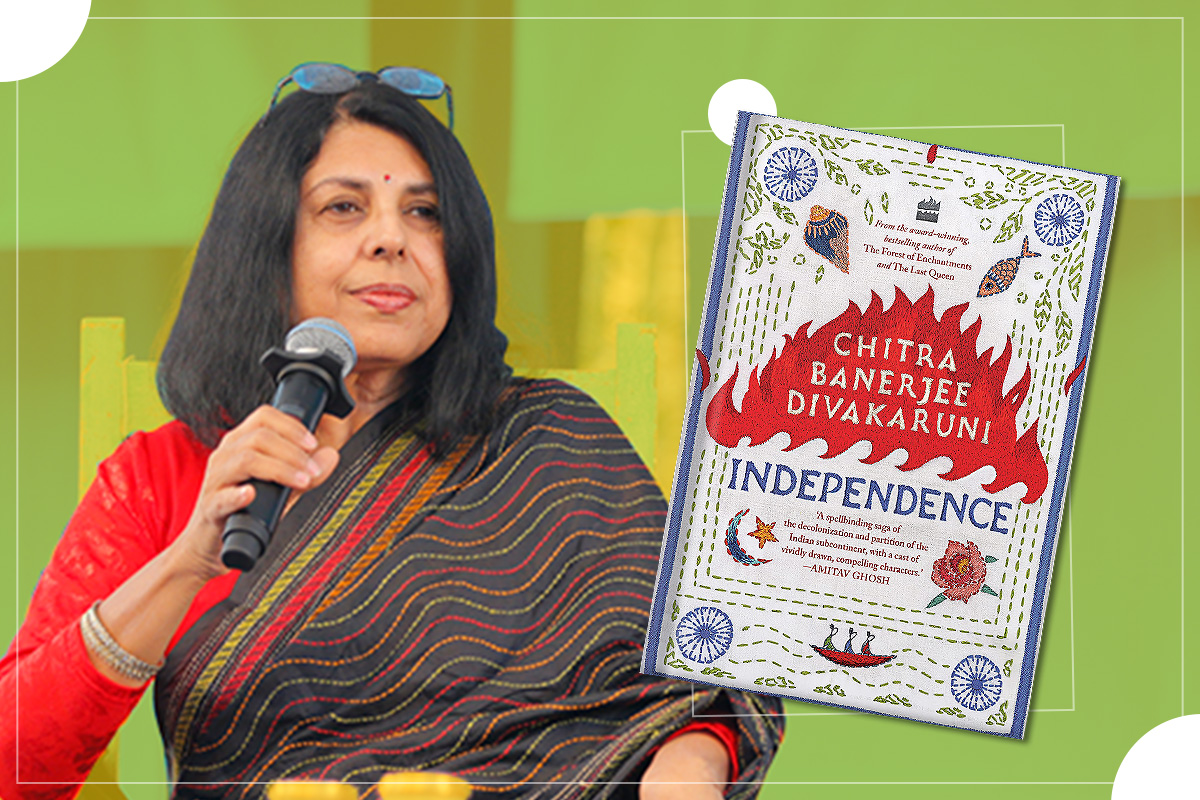Editor’s Note: This month, that is February 2020, FII’s #MoodOfTheMonth is Feminism and STEM. We seek to challenge the exclusionary biases in the field, by inviting various articles on the works of women, queer individuals, and people from marginalised communities in STEM, the ways in which the sciences are biased, stereotypes and misconceptions in STEM, and the experiences of people from marginalised identities in the field. If you’d like to share your story, email us at maduli@feminisminindia.com.
Last week I visited Smaaash Gurgaon, a popular gaming parlor that has virtual reality games, among other entertainment activities. It was supposed to be a fun night out with friends and a break from the disappointing reality of patriarchy. But, well, that didn’t quite work out as I had planned. I guess the disappointment is inevitable. Before proceeding forward with the article, let me highlight that the point of the article is to highlight the rampant sexism in video games and not a review of Smaaash. But coming back to the story.
While my friends were game hopping, they landed on one game that involved landing a punch on a punching bag as hard as one can. This wasn’t the annoying part, in case you were wondering. On the screen that displayed the score, there was an image of an overly sexualised woman whose body was covered with clouds and depending upon the strength of the punch, the clouds would gradually disappear revealing the visibly naked body of the character.
It is problematic on so many levels. Firstly, it is extremely sexist, disrespectful to women, and feeds into the the male voyeuristic fantasies. It reiterates a disturbing patriarchal mentality of sexualising women and normalising it. Moreover, the game depended on the display of physical strength that is already glorified in patriarchy as a measure of one’s ‘manliness’. Secondly, most often families and children visit such gaming parlours and I shouldn’t even have to explain how wrong it is if children are exposed to such visuals.
Portrayal of female characters in video games
This experience made me think of the innumerous games I have played in my childhood. I can’t recall any strong female characters in these games. But I remember that most of the adventure, sports and action games that I have played didn’t have any female characters at all. They simply obliviated women. Then there were games that had female characters but unsurprisingly were overly sexualised female characters. I specifically remember GTA ViceCity where female characters were only designed for the male gaze with sexualised bodies and clothes that barely covered them. Even when there are female characters in action games, all the focus is given on making their body as uncannily as they can, with their bodies oozing out of the already minimum clothing they have on.

Source: digitalamerica.org
Lastly, there were games where the female characters reiterated the gender-roles and stereotypes like baking, cooking, hair styling, and fashion. For example, Makeover and Baking games that inevitably have women characters.
The two major reasons that I find behind this misrepresentation of the women in games are, one, that it caters to the heterosexual male audience despite women now forming almost 46 percent of the consumers in the US and UK. Secondly, there are very few women who are in powerful positions in the gaming industry. Even though the video game industry has seen a revolution in the past few years in terms of its growth and revenue, women still form roughly 22- 25% of the workforce in the gaming industry, and only 5 percent (approximately) of these are employed in programming roles.
How pervasive is sexism in the video gaming industry?
If you are a person who is associated with the gaming industry, you might be familiar with a game called League of Legends that is developed by an infamous gaming company called Riot games. If you aren’t then let me tell you, not about the game but the company.
In 2019 May, the company saw first-ever employee walkout where 150 employees registered their protest against the rampant hostile and sexist work environment of the company. The sexist culture of the company was first exposed in an investigation by a video games website Kotaku. Former employees accused some co-workers of sexual harassment and filed four lawsuits against the company over discrimination, violation of the Equal Pay Act, and workplace harassment.
The accounts of the employees reported the rampant ‘bro-culture’ that existed in the company, women were subjected to sexist comments and harassment, they were not promoted, or hired for positions of power. If that didn’t disgust you, the next statement would. There was also a ‘list’ of women employees that the higher officials wanted to sleep with. The harassment was not restricted to just women though, male coworkers were also subjected to sexual harassment. The realisation that sexism is pervasive in the gaming industry isn’t new, but this report of Riot Games brought the issue to the mainstream.
What do women in gaming go through?
If workplace harassment wasn’t enough, women also face cyberbullying and harassment as gamers. There are multiple accounts of women gamers being harassed, abused, and threatened.
First, there is a huge disbelief that women can’t be good gamers. In India, 32 percent of gamers are women. Due to gender stereotyping, gaming is not seen as a women’s forte and is seen as something that only men are good at. If a woman announces that she is a gamer, she is automatically not taken seriously. Many women gamers hide their identity and mute the audio while playing an online multiplayer game, especially in action games, so as to avoid constant harassment. Women often receive lewd comments, friendship requests, and innuendos that adds to the trauma of being a woman in this society.
Video games by default become a platform to display one’s power and masculinity, which is most often toxic. It reiterates the sexist mindset that stems from patriarchy.
A ray of hope
As more and more women are playing video games across the globe, there is a hope that the gaming industry will take note of these changing stats and start building games that cater to women and men alike. Also, with Riot Games being held accountable for its sexist and unhealthy workplace environment, and increasing demands of unionising, hopefully, we will see some positive changes soon.
Moreover, strong steps need to be taken to ensure that the cyberbullying and online threats that women face are addressed effectively. Strong cyber laws need to be implemented in order to hold men accountable for their toxic behaviour in the digital space. Apart from the systemic changes in the gaming industry, it is essential that the existing sexist mindset that enables stereotypes is broken. One has to start accepting that video gaming isn’t just a guy’s thing.
Feature Image Source: PickPik
About the author(s)
Art| Photography| Poetry
Political and social being




